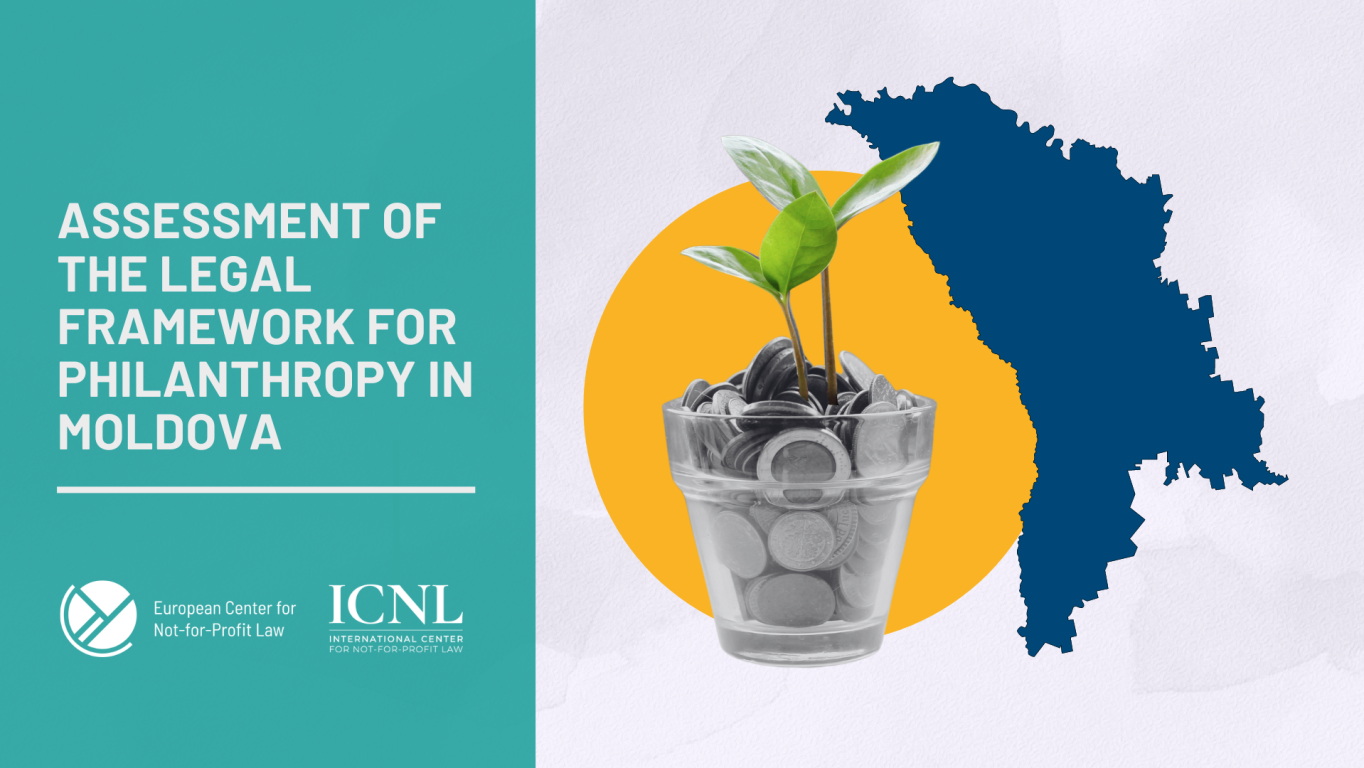
In recent years, civil society in Moldova has witnessed several improvements in the legislative environment, such as a new progressive law on noncommercial organisations, greater participation and the CSO Development Programme 2024-2027.
However, civil society is still hindered by its reliance on foreign funding, which limits organisations’ financial sustainability. In an effort to support the capacities for domestic fundraising in the country, ECNL and ICNL carried out an assessment of the environment for philanthropy and the percentage designation mechanism, in close collaboration with CONTACT Center and the Platform for the Development and Promotion of Philanthropy.
The analysis of practical and legal pathways for more successful domestic fundraising was guided by ECNL’s Monitoring Guide to the Regulatory Environment for Philanthropy. It was also informed by several country visits, desk research, focus groups and interviews: the stakeholders consulted ranged from CSOs through companies and donors to government institutions. The assessment covers:
- State policies & regulation of philanthropy;
- Percentage designation mechanism;
- Individual & corporate philanthropy; and
- Various fundraising methods and their peculiarities, including crowdfunding platforms, SMS donations and fundraising events.
The main goal of the assessment was to identify the existing shortcomings and good practices and propose specific recommendations for law reform to expand philanthropy in Moldova. Beyond the legal framework, the research team identified numerous practical challenges that stand in the way of effective fundraising. With specific recommendations for donors, CSOs and state institutions, the assessment serves as a guide for advocating for an improved fundraising environment.